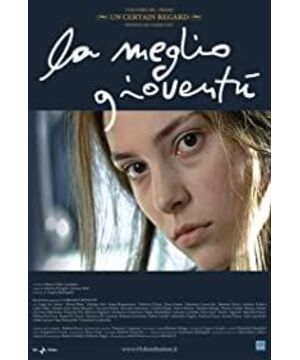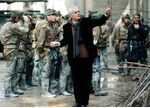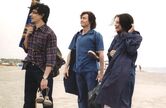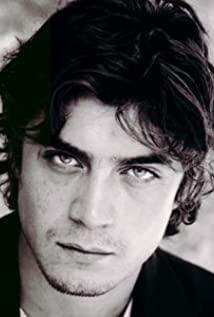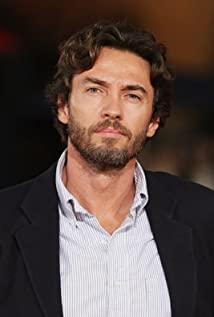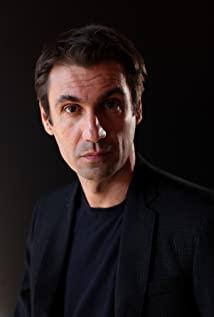Soon after the film began, Madio did a series of things-took Zuo Zhen who was shocked from the hospital, took her home, and angrily taught Zuo Zhen's father; he clearly pointed out Diban during the graduation defense. The emptiness of Nishi’s poems and the lack of knowledge and skill of Dibane himself expressed his appreciation for Bichao, a ridiculous imitation poet in the eyes of his teacher (I don’t quite understand what he implies in the passage of Zuo Zhen’s diary, That seems to be very important. [Later a careful friend told me that it was filled with Madio] The turning point in Madio's life seemed to happen at the moment Zuo Zhen was taken away. From that moment, he began to doubt himself and the goodness of the world. Evil, doubting the basis of one’s faith, starting from the inability to save Zuo Zhen, to the inability to save Nu Ji (Madio’s view of Nu Ji, “Nu Ji understands poverty better than you, he is poor, but the one who beat him is not.” The extended doubts about the nature of the revolution and the nature of the world are an example) and the belief that he is unable to save the world. When Madio stood on the train and told Nicolas that I was unqualified, it was not just for his literature. Negation is a denial of the philosophy of life. It is not unqualified but impossible to qualify. He became crazy and began to exile himself. He joined the army and never "defies" orders, but he refuses to be manipulated and has no job. Performance, some are just some noisy incidents, he joined the police force, the expectation of discipline is neither a lie nor prevarication, "discipline" is his way of banishing himself, the execution of discipline is the value of existence, do things according to orders, just take care of his own. It expresses his metaphor for the way the world exists. In Madio’s eyes, he can no longer insist on justice and kindness based on the world itself (the world in the movie), because the world expresses such a feeling without People have made fundamental mistakes. Everyone who makes mistakes is correct in a certain group (family, husband and wife, friends...) under certain conditions, just as we are used to evaluating the people around us: He is not bad. His nature is good, or sometimes from a completely opposite perspective: there are no good people in this world, everyone is the same, and the world is as dark as crows. But for a person of pure faith, such a world It's not worth living, and his meeting with Melalie is actually an irony for the so-called exploration of the soul and the inner exploration of Madio, because he himself has banished himself, and the soul has nothing.
"You have no feelings, sounds, breathing, or listening to my speech, nothing. The answer to my question is: nothing, this is the answer to his exploration of the soul."
Yes, he sees the inside, but the soul is like Nothing....
Madio said: I should have known. How were you back then, how was I back then. Zuo Zhen’s only answer was: madness. And for Melalie’s question, "Why did you lie to me, in Sicily you lied to me... Nicolas, why?" Because Nicolas is Madio in this world Reason exists, but he is nihility, because Madio has been exiled, which means that Madio’s exile directly led to the nihility of Nicolas, the most persistent character in this movie (Madio is Nicolas’s divinity). Basically, we can see from the dialogue between him and Ma’s son), the best ending of the exile in this world is Nikolai for Madio (this is my explanation of Madio’s name as Nikolai ), but even Nicolas is ultimately not worth having for Madio. In fact, Nicolas considered Zuo Zhen's whereabouts very early, and when he made a decision, he also technically dismissed Zuo Zhen. , He is a symbol of the world’s rational treatment of everything, and the basis of this reason (as we can see in the dialogue between Nicolas and Mateo’s son) is Mateo, but Mateo cannot be tolerated by the world. Yes, remember the conversation between Nikolai and the corrupt official?
"Do you want to prove that I am crazy?"
"This will facilitate your lawyer's work."
"My wife and daughter don't know the truth. I didn't know it before yesterday."
"You didn't know that you broke the law? "
"You work in a hospital, don't you? I believe there must be a company for you. 5%~10% is a public price. I don’t believe you don’t know it. You may already know it, but you ignore it, like thousands Like ten thousand Italians, until one day, the judge walked up to the door and said that those commissions were illegal rebates, and political contributions under the table were illegal. I was a thief. It was shocking news. Not everyone who stole Apple had to go to jail. This The world is fair, but they forgot to line up to donate money to us that day, in exchange for our convenience, now they want to change the world, believe me, nothing will change everything is an illusion, they just catch us stupid people, others People still steal their lives. This is Italy. This phenomenon is not caused by me or by your father. Believe me.”
“No, it has nothing to do with my father. The situation when I met my father shows that my father is in fact very likely to be guilty.)”
Finally, Melari’s words are the real key, “You like books because you can abandon him at any time.” Books are Madio’s discipline. Metaphorically, discipline is Madio’s living truth. From the time he left Zuo Zhen, he chose to exile his life, but his exile was not depravity, but fragmented the belief in his heart, and used absolute obedience to confront the system. Absurdity, even more rational absurdity, to use Melalie’s words: Just like picking up a book, throwing it away at any time (obeying orders) and picking it up at any time (those noisy events), ending with Melalie’s The violence against criminals after the dialogue was the last time he picked up a book (that is, he often called the shots). Madio died on New Year’s Eve with dazzling fireworks. This form itself seems to express a kind of splendid life for movies, that is, horses. An irony in Dior's world.
Finally, add a plot. The somewhat dramatic professor said to Nicolas: I want to give you a piece of advice. If you have ambitions, you have to leave your country, leave Italy, leave this country,...the place is beautiful, but there is no hope. ..... I hope so, and we can rebuild our country. It's better than lifelessness now. Dinosaurs control us... I am one of the people destroyed by dinosaurs!
Postscript: I don’t know why when I saw Madio, I would think of Al Basano in Godfather II. He was a good man, but he was lonely (everyone went to welcome Marlon Brando at the end of the film. However, Al Basino was there alone, but now he is standing in the villa by the lake, he is the absolute center of power, but he is very lonely and does not know who he is. He killed his brother and expelled him. His wife, this is another possible tragedy for Madio. If he is not suicide, if he is not self-exiled, then in this world, Al Basino is his most likely ending. I am willing to put Madio. His suicide was seen as saying “no” to the inevitable chaotic world. Therefore, Matteo’s suicide was not so much a tragedy, but rather embodied his greatness. Al once wanted to say no to this family. , But he could not shed the responsibility of the tragedy. Now Madio has completely abandoned this world. This is not a kind of cowardice, but from the highest angle of human nature, he has made a truly his own choice for life and this world. , Said nothing to life and all the absurdities. To put
it more simply, Nicolas is the human glory of this movie, but with Mateo, this movie has a divine perspective, or that Mateo wants Seeing God's vision with the physical existence-everything is reasonable, but what he sees is that everything is absurd, and he is not immune. The
above is only about Mateo, not the whole of the movie.
View more about The Best of Youth reviews


